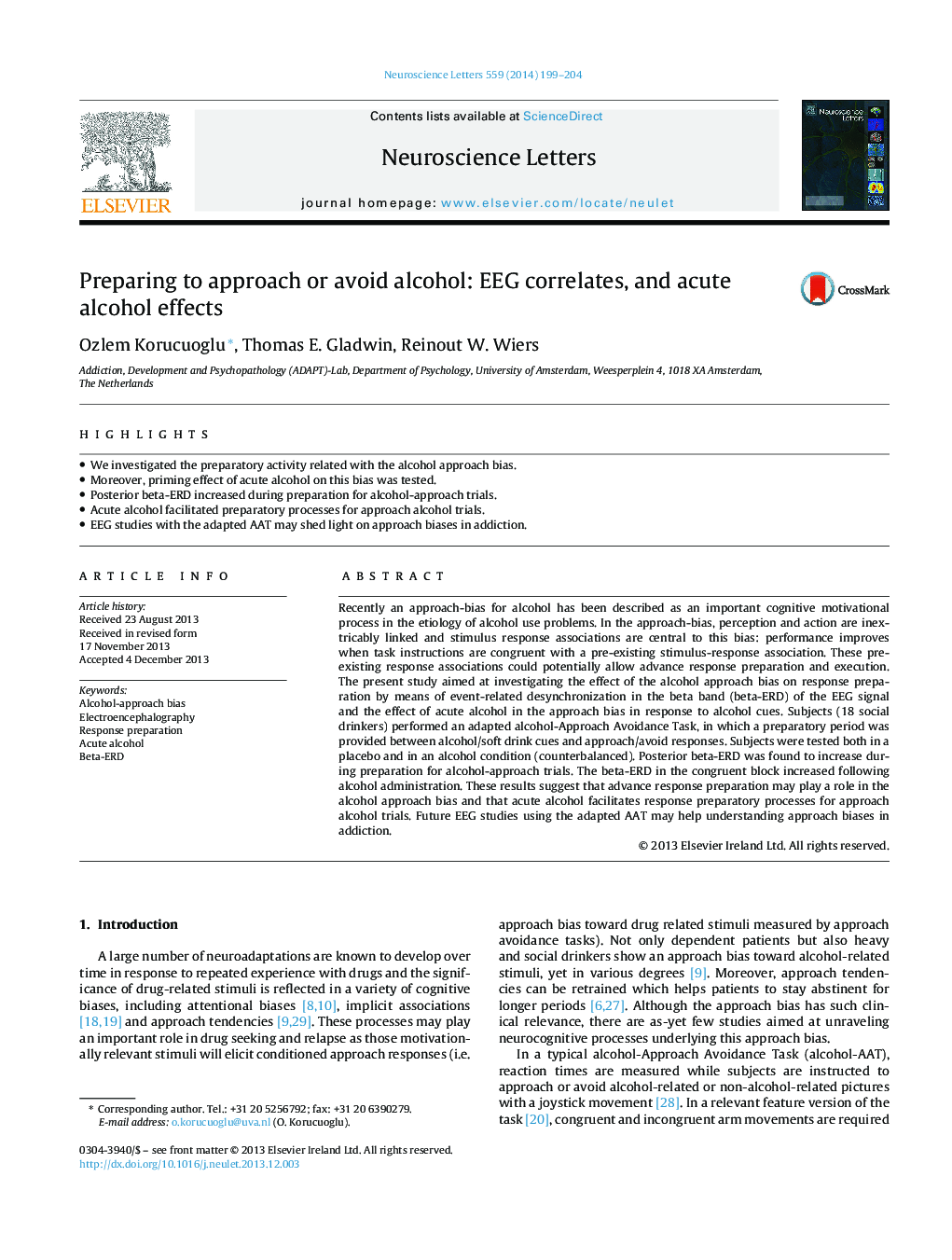| Article ID | Journal | Published Year | Pages | File Type |
|---|---|---|---|---|
| 6282436 | Neuroscience Letters | 2014 | 6 Pages |
Abstract
Recently an approach-bias for alcohol has been described as an important cognitive motivational process in the etiology of alcohol use problems. In the approach-bias, perception and action are inextricably linked and stimulus response associations are central to this bias: performance improves when task instructions are congruent with a pre-existing stimulus-response association. These pre-existing response associations could potentially allow advance response preparation and execution. The present study aimed at investigating the effect of the alcohol approach bias on response preparation by means of event-related desynchronization in the beta band (beta-ERD) of the EEG signal and the effect of acute alcohol in the approach bias in response to alcohol cues. Subjects (18 social drinkers) performed an adapted alcohol-Approach Avoidance Task, in which a preparatory period was provided between alcohol/soft drink cues and approach/avoid responses. Subjects were tested both in a placebo and in an alcohol condition (counterbalanced). Posterior beta-ERD was found to increase during preparation for alcohol-approach trials. The beta-ERD in the congruent block increased following alcohol administration. These results suggest that advance response preparation may play a role in the alcohol approach bias and that acute alcohol facilitates response preparatory processes for approach alcohol trials. Future EEG studies using the adapted AAT may help understanding approach biases in addiction.
Related Topics
Life Sciences
Neuroscience
Neuroscience (General)
Authors
Ozlem Korucuoglu, Thomas E. Gladwin, Reinout W. Wiers,
